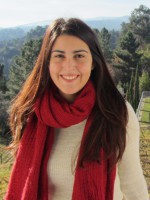abstract
The present study assesses the diversity and composition of sediment bacterial and microeukaryotic communities from deep-sea mud volcanoes (MVs) associated with strike-slip faults in the South-West Iberian Margin (SWIM). We used a 16S/18S rRNA gene based pyrosequencing approach to characterize and correlate the sediment bacterial and microeukaryotic communities from MVs with differing gas seep regimes and from an additional site with no apparent seeping activity. In general, our results showed significant compositional changes of bacterial and microeukaryotic communities in sampling sites with different seepage regimes. Sediment bacterial communities were enriched with Methylococcales (putative methanotrophs) but had lower abundances of Rhodospirillales, Nitrospirales and SAR202 in the more active MVs. Within microeukaryotic communities, members of the Lobosa (lobose amoebae) were enriched in more active MVs. We also showed a strong correlation between Methylococcales populations and lobose amoeba in active MVs. This study provides baseline information on the diversity and composition of bacterial and microeukaryotic communities in deep-sea MVs associated with strike-slip faults.
keywords
DEEP-SEA SEDIMENTS; RIBOSOMAL-RNA SEQUENCES; MID-ATLANTIC RIDGE; PROKARYOTIC COMMUNITIES; MICROBIAL COMMUNITIES; EUKARYOTIC DIVERSITY; MOLECULAR EVIDENCE; SMALL-SUBUNIT; OCEAN; METHANE
subject category
Science & Technology - Other Topics
authors
Coelho, FJRC; Louvado, A; Domingues, PM; Cleary, DFR; Ferreira, M; Almeida, A; Cunha, MR; Cunha, A; Gomes, NCM
our authors
Groups
acknowledgements
We thank the Captain and crew, as well as the scientific and technical parties onboard the R/V Meteor during the M86/5 cruise for excellent support at sea. The cruise was funded by the German Research Foundation (TransFlux grant) with additional support by the Portuguese Foundation for Science and Technology (FCT) with the SWIMGLO project (FCT PTDC/MAR/100522/2008), and FLOWS (EU-COST, ES 1301). Thanks are due, for the financial support to CESAM (UID/AMB/50017), to FCT/MEC through national funds, and the co-funding by the FEDER, within the PT2020 Partnership Agreement and Compete 2020. Francisco J.R.C. Coelho was supported by a Post-Doc scholarship (SFRH/BPD/92366/2013), Antonio Louvado and Patricia Domingues were supported by PhD scholarships (SFRH/BD/86447/2012; SFRH/BD/88162/2012) funded by FCT, Portugal. We thank Clara Rodrigues (University of Aveiro) for elaborating the map in Figure 1.


